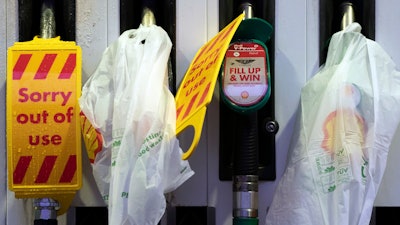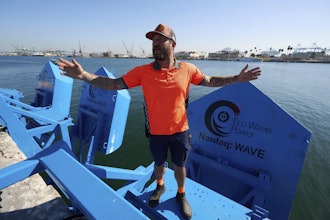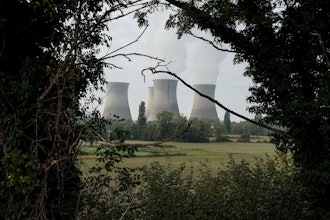
LONDON (AP) — Lines of cars formed at some British gas stations for a fourth day on Monday, as the government mulled sending in the army to help ease supply disruption triggered by a shortage of truck drivers.
As the British Medical Association called for emergency workers to be given priority for fuel supplies, Petrol Retailers Association chriman Brian Madderson said training had been taking place “in the background” for military personnel to drive tankers.
The government said it had “no plans at the moment” to deploy troops, but was making preparations just in case.
The Petrol Retaillers Association, which represents almost 5,500 independent outlets, said Sunday that about two-thirds of its members were reporting that they had run out of fuel, as the driver shortage set off a round of petrol panic-buying.
The government insisted the U.K. had “ample fuel stocks,” and blamed the problems on consumer behavior.
“The only reason we don’t have petrol on the forecourts is that people are buying petrol they don’t need,” said Environment Secretary George Eustice.
Dr. Chaand Nagpaul, chair of council at the British Medical Association, said health care workers and other essential services staff should be “given priority access to fuel so they can continue their crucial work and guarantee care to patients.”
Roland McKibbin, a self-employed electrician in London, said he had had to cancel jobs because he couldn’t get gas.
“I rely on fuel to travel to jobs, no fuel means I can’t drive, which means I can’t get to jobs with my tools,” he said. “So, basically, the panic-buying idiots have lost me income, and directly taken food off the table for my wife and 5-year-old son, because I can’t wire people’s houses from home, unfortunately.”
The haulage industry says the U.K. is short as many as 100,000 truckers, due to a perfect storm of factors including the coronavirus pandemic, an aging workforce and an exodus of foreign workers following Britain’s departure from the European Union last year. Post-Brexit immigration rules mean EU citizens can no longer live and work visa-free in Britain, as they could when the U.K. was a member of the bloc.
Several countries, including the United States and Germany, also are experiencing a shortage of truck drivers. But the problem has been especially visible in Britain, where it has contributed to empty supermarket shelves and shuttered gas pumps.
In an effort to ease the gas crunch, the government said it was temporarily suspending competition laws so fuel firms can share information and target areas where supply is running low.
It is also bringing in military driving examiners to help clear a backlog of new truckers awaiting tests, though Eustice said “we’ve no plans at the moment to bring in the army to actually do the driving.”
“But we always have a civil contingencies section within the army on standby,” he added.
And, after weeks of mounting pressure over shortages, the U.K.'s Conservative government announced Saturday that it will issue thousands of emergency visas to foreign truck drivers to help prevent a Christmas without turkey or toys for many British families.
The government said it would issue 5,000 three-month visas for truck drivers starting in October, and another 5,500 for poultry workers.
But that falls far short of the number needed. Ruby McGregor-Smith, president of the Confederation of British Industry, said the announcement was “the equivalent of throwing a thimble of water on a bonfire.”
Representatives of European truckers were skeptical that many would want to come to the U.K. for such a short time. The visas are due to expire on Dec. 24.
Edwin Atema from the Dutch FNV union, which represents drivers across the Europe, said the visa plan was “a dead end.”
“I think the EU workers we speak to will not go to the U.K. for a short-term visa to help U.K. out of the (mess) they created themselves,” he told the BBC.
Olaf Scholz, leader of Germany's Social Democrats, the party that came first in the country’s election on Sunday, also linked Britain’s worker shortages to Brexit.
“The free movement of labor is part of the European Union, and we worked very hard to convince the British to not leave the Union,” he said. “Now they decided different, and I hope they will manage the problems coming from that.”






















